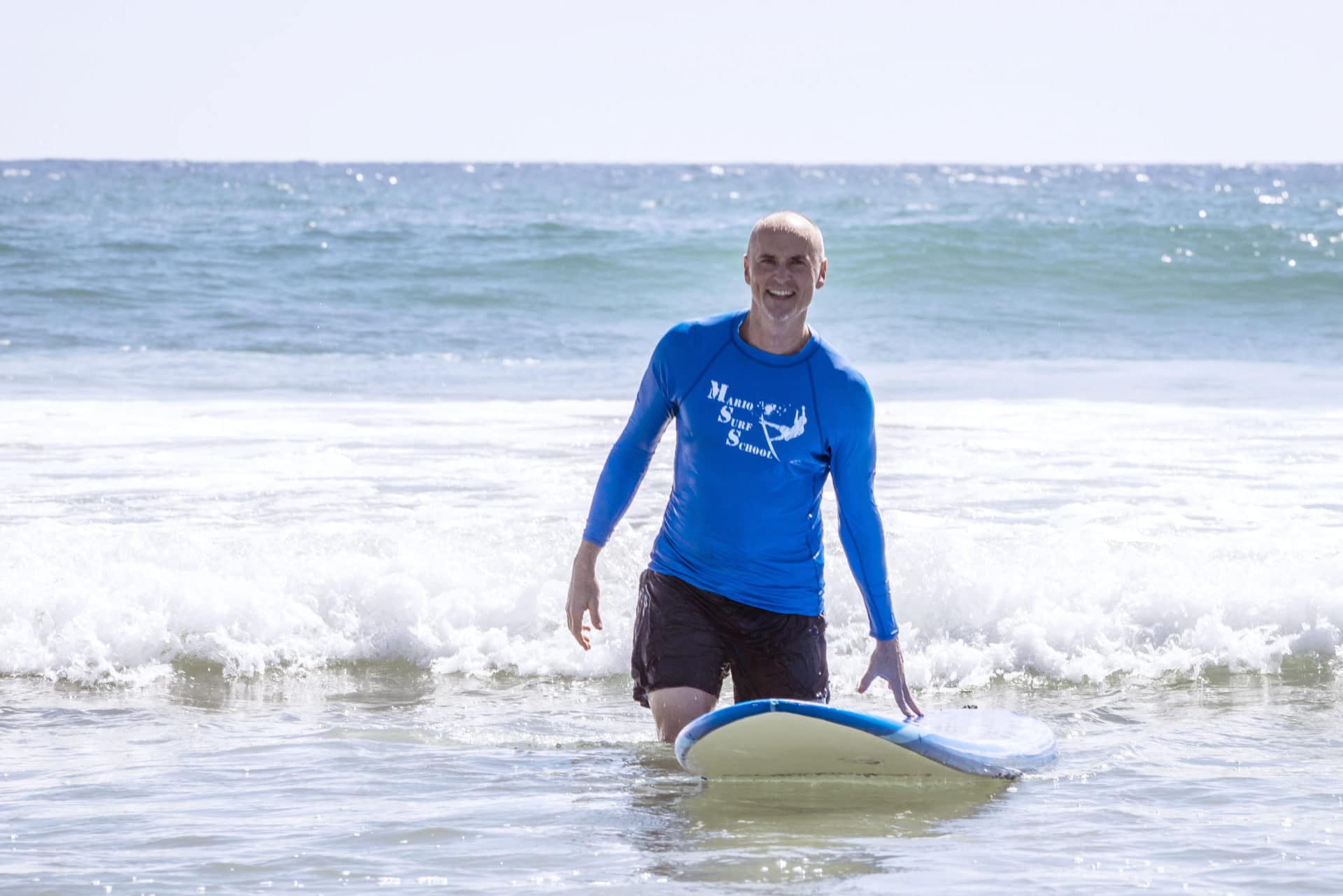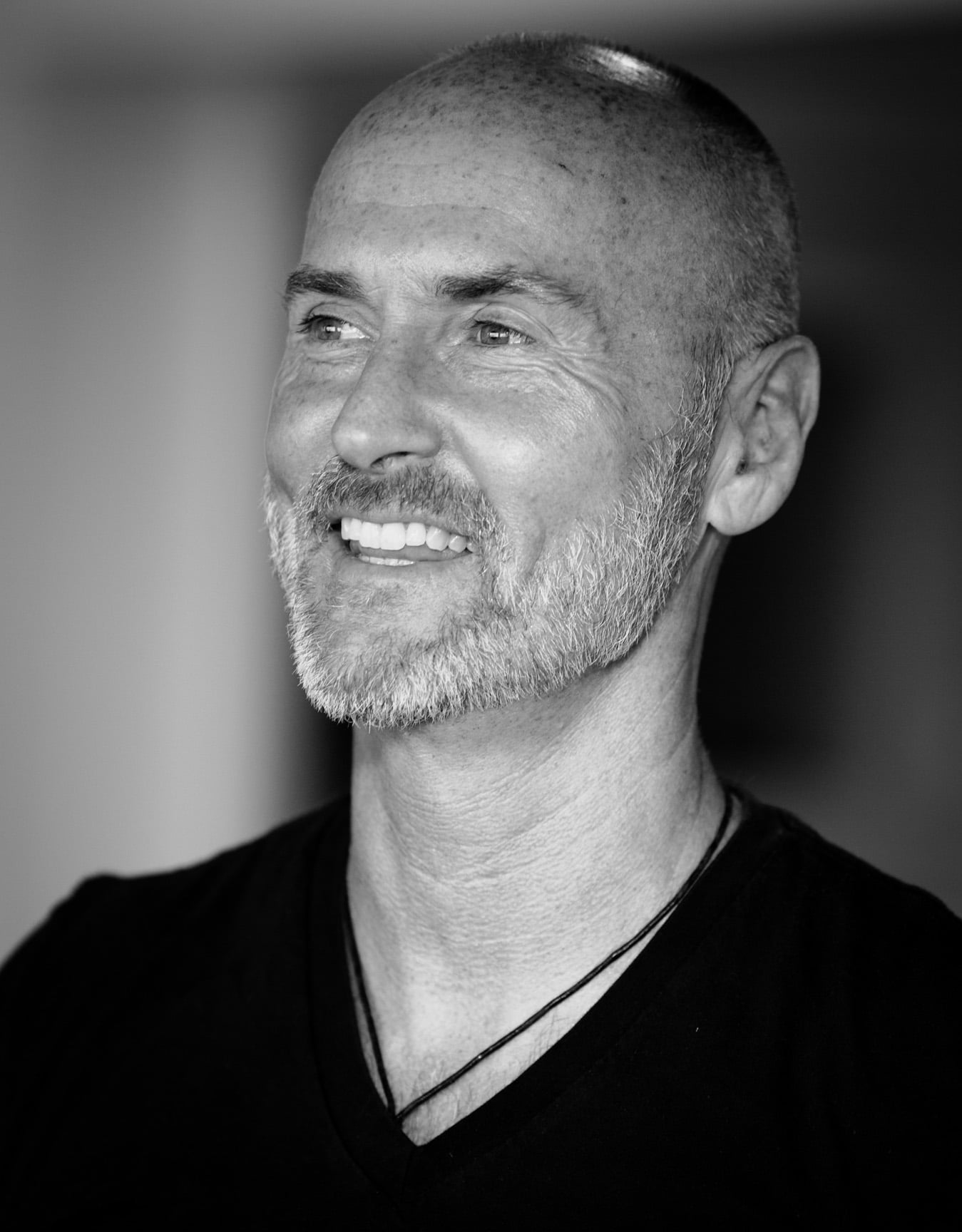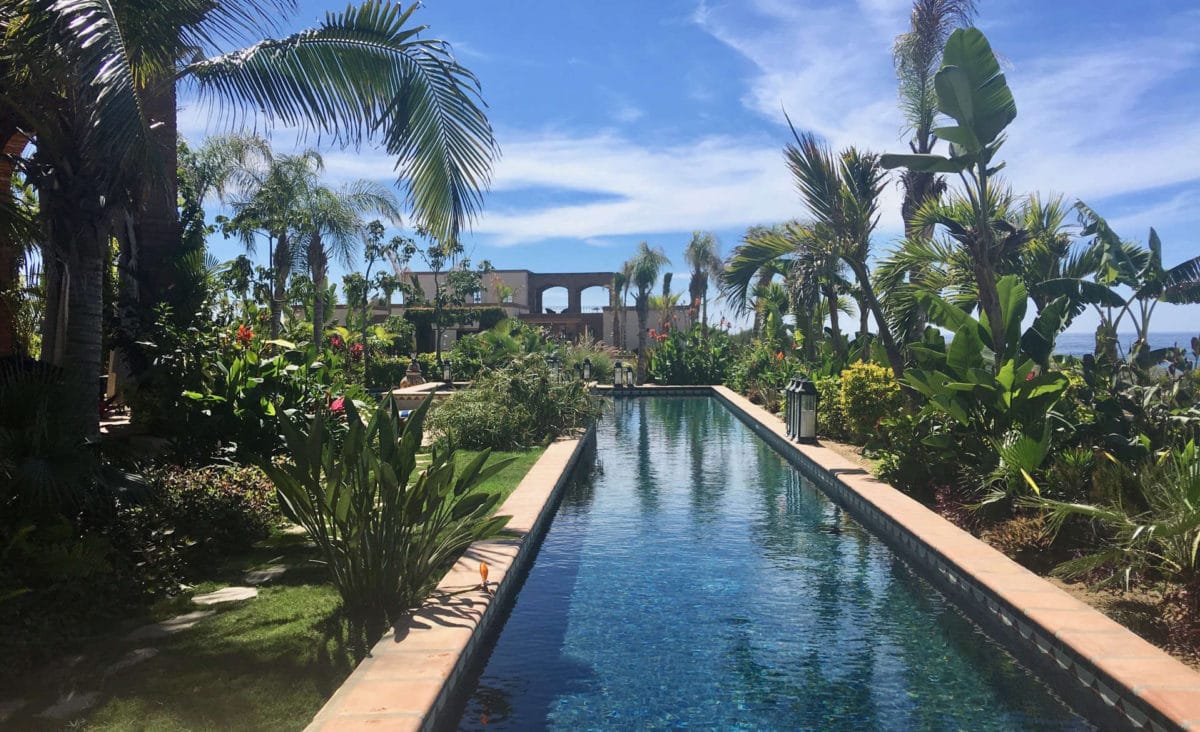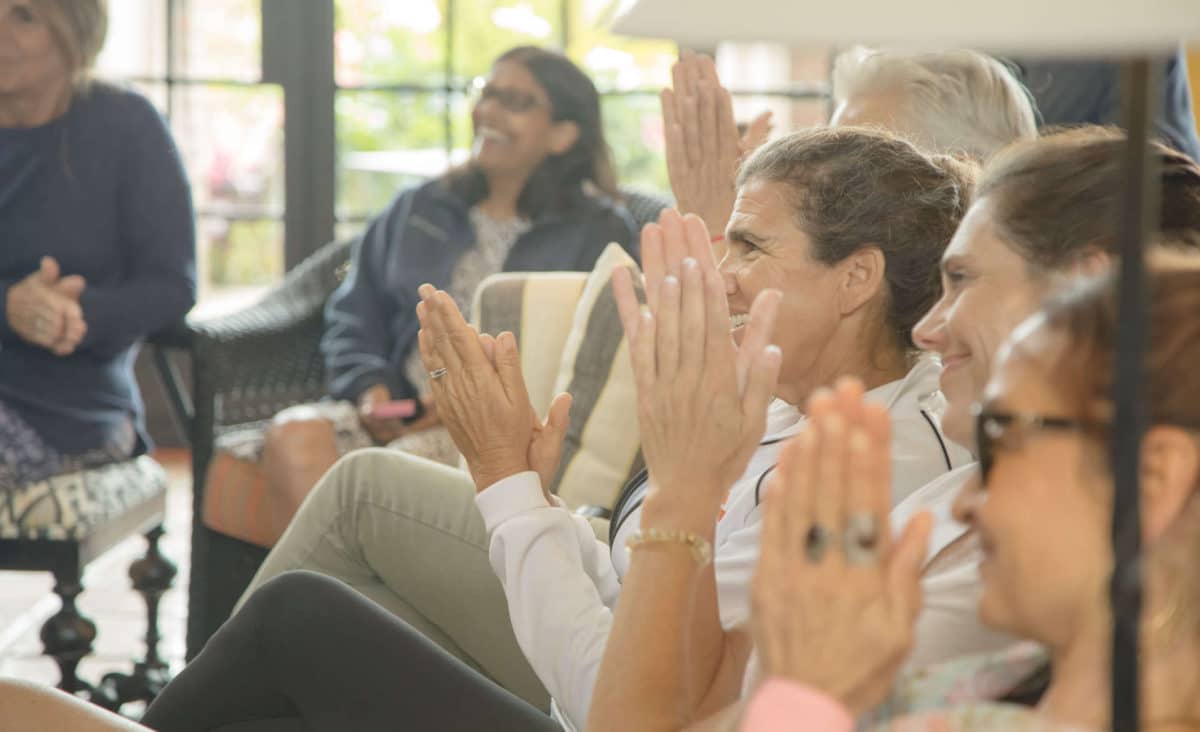
A few years ago, Chip Conley, a high-profile hotelier who’d sold the business he built up from scratch and turned to a life of book writing, public speaking and visiting music festivals, decided to do something rash.
At 52, he agreed to enter an industry he knew little about to mentor a CEO whose company was growing at a breakneck pace. The friendship of Conley and Airbnb founder Brian Chesky was trumpeted in the press, and his new role’s title — Head of Global Hospitality and Strategy — seemed a fitting acknowledgment of Conley’s years building up Joie de Vivre into the second-biggest boutique hotel chain in the country.
But within a few weeks, Conley realized he’d gotten it the wrong way around.
“My historical wisdom, some of it was valuable, much of it was not. My knowledge of how long it takes a housekeeper to clean a hotel room was not very valuable in the context of Airbnb hosts,” he told me. “So I realized my bricks-and-mortar wisdom was only half valuable. I needed to be as much of a learner as I was a teacher.”
The Anatomy of a Modern Elder
For Conley, this experience had some unexpected outcomes: an infusion of new skills needed in the tech economy, a new idea for a retreat, and a must-read, best-selling book. In Wisdom@Work: The Making of a Modern Elder, published in September, he reveals secrets to thriving as a midlife worker: learning to marry wisdom and experience with curiosity, a beginner’s mind, and a willingness to evolve, all hallmarks of the “Modern Elder.”

Wisdom@Work is part manifesto, part playbook and part motivational self-help book, tapping into the urgent conversation about ageism in the workplace. It’s increasingly important topic as the portion of those 55 and older in the US labor force soared from about 12% to more than 22% between 1996 and 2018.
Wisdom@Work takes a proactive approach to what each of us can do to stay relevant in the workforce, inspiring us to embrace wisdom as a path to “growing whole, not old.” While digital skills might have only the shelf life of the latest fad or gadget, the human skills that mid-career workers possess — like good judgment, specialized knowledge, and the ability to collaborate and coach — never expire.
“We ‘workers of a certain age’ are less like a carton of spoiled milk and more like a bottle of fine wine of an especially valuable vintage. Especially in the digital age. And especially in the tech sector, which has become as famous for youth as for innovation, and as notorious for toxic company cultures and human resource headaches as for reckless twenty-something CEOs — and where companies and investors are finally waking up and realizing they could use a little ‘wisdom insurance:’ the humility, emotional intelligence and wisdom that comes with age,” Conley argues in this book.
Modern Elders, he says, don’t have to be older than a specific age or in a senior position at a company. But they do have to be older and wiser than those around them. That could be a 40-year-old surrounded by 20-somethings or a 60-year-old working with people in their 40s. A Modern Elder is a role that’s part mentor, part intern. They are constantly evolving, learning, collaborating and counseling. They are “catalytically curious.”
A Midlife Atrium
Up until his work at Airbnb, Conley’s career followed the same path he’s now begun questioning. He “learned” at Stanford University — first as an undergraduate, then at its business school — then “earned” as he built Joie de Vivre from one boutique hotel (The Phoenix in San Francisco’s Tenderloin district) to 52 properties in 24 years (and through a couple of recessions). Before he “retired” to start a website on the world’s best music festivals, he penned a book on how Joie de Vivre endured the post 9/11 storm in the travel industry, with some help from 20th century psychologist Abraham Maslow.
PEAK: How Great Companies Get their Mojo from Maslow was instrumental in the early thinking of AGEIST. When he emailed us out of the blue a couple of years ago, we were giddy with delight — we felt we had really made something of value if Chip was taking the time to check us out. Since then, Chip has been a tireless supporter and mentor to us. (Note: to people looking for secrets to success, Chip is probably the world’s quickest email responder.)
Not a year after PEAK was published in 2007, Conley collapsed on stage in St. Louis delivering a keynote speech. He actually flatlined — and paramedics had to resuscitate him. He attributes the medical emergency to a negative reaction to some antibiotics he was taking after getting a bacterial infection in his leg.
The episode left him searching again. Only this time it wasn’t for inspiration to help his company survive. He turned to another author — not Maslow, but Viktor E. Frankl, who wrote Man’s Search for Meaning. It’s no surprise that Conley later arrived at a company — Airbnb — that aspires to be more than a booking platform. In the same way, Conley — who’s spent a career without settling — sees later life as an opportunity to continue to live with meaning.
“The premise a lot of people have [around our increased longevity in the 21st century] is: ‘Oh shit, that means I have 10 more years of being aged.’ But what I propose, and what AGEIST espouses, is if you have 10 extra years, then what if those ten years are really a midlife atrium?” he says. “Think of it in terms of a house — an extra ten years, you typically fit it into the backyard. But what if it’s not an extra bedroom in the back of your home, but an atrium in the middle of your life. What if it’s just ten more years in your midlife?”
The Dumbest Person in the Room
The unspoken challenge: What would you do then? In Conley’s case the answer is the same thing that worked so well earlier: throw yourself into impossible situations; be the “dumbest” person in the room again. In the short time I’ve known him, I’ve seen how eager Conley is in combing the zeitgeist for cultural trends and new points of view, whether he agrees with them or not. During his time learning the ropes in the tech world, Conley also began to learn how to surf — a challenge at any age.

But he also realized he had plenty to offer the new masters of the universe. Chesky and team brought him on because of his knowledge of the hospitality industry as well as his years leading a company through shifting economic climates.
“The thing that they didn’t expect, that I think was my greatest value, was adding to the emotional intelligence of the company,” he says. “That had a lot to do with the fact that I’ve been on this planet a lot longer. And I do think that emotional intelligence is a skill you build over time and I think it one that is not given enough credit. And it’s part of the reason I became a confidant and mentor to so many employees that didn’t report to me.”
We strongly believe intergenerational work groups are the future, and you should ignore them at your company’s peril. But recognizing the skills that we possess and understanding how to apply them in a new context, especially one as dynamic as tech, is not a realization we make immediately. Conley realized skills he’d long taken for granted could be applied in a different environment, and inspired him to think differently about what we do with our newfound longevity. And he wanted to share that with others.

Earlier this year — on two acres of property he owns in Baja — he opened the Modern Elder Academy where people who are hitting the reset button can come for a few weeks. It is the first school of its kind, created to help people in midlife repurpose their knowledge and embrace their mastery, value, and the roles of wisdom-keeper and –seeker.
Although all the workshops are grounded in the Modern Elder core philosophy, each has a unique spin. For example, a Feb 24th weeklong workshop next year titled Transform Through Yoga & Surfing is led by two surfers who will “become water” for a week to help participants adapt “to your midlife waves.” Another, The Creative Self, uses different media to encourage people to tap into their creativity.

Workshops on how to mine a lifetime of skills and apply them to a new industry are part of the offering, but they require “pouring out some of your historical identity and even your knowledge and your way of being, [to create] space for new things to go in the vessel.”
Each of the workshops is grounded in four primary pillars. It’s this process Conley believes is the most vital in tackling later life and it’s something he talks about in depth in his new book, Wisdom@Work. Frankly, the book should be on the shelf of every HR department in America. We’re at the beginning of a wave that can either flatten us, or one we can surf. Conley shows us how to surf.
“The part that’s interesting to me is: How do we make moving into our 50s and 60s aspirational?” he says. “The best part of movies or sporting events is not the first half of the game, it’s the second half. It’s the crescendo effect of the latter part of your life. And the crescendo is that it all comes together.”
Tips from Chip
Chip is a master communicator, so the challenge of the above profile wasn’t what to include, but what to leave out. His passion is the value of intergenerational relationships, so I wanted to allow a bit more space for him to talk about what he’s learned working with bright talent at a place like Airbnb.
I learn cultural trends. In many ways millennials have taught us that the three-phase life [learn, earn, retire] is over. It’s constant pivots. Now in a very mobile world, Airbnb isn’t the home away from home, it’s the home instead of home … There’s this idea of not learn, earn, retire; it’s more like retire and earn at the same time, and the idea that this work/life frappe is how it works. It’s not a work/life balance. It’s all woven together.
There’s an optimism and idealism that my generation have, and yet the social entrepreneurship side of millennials allow them to come from a perspective of ‘I’m going to go out and fix it.’ It’s sort of like the startup mentality applied to social causes. The level of confidence young people have in being able to go out and to create change themselves is greater than at any time in the past.
There’s a narrative out there that I think is not exactly accurate. Younger people are thirsty for learning and for having role models. Maybe not in the traditional way of having a role model; more someone who is a compatriot and confidant rather than a school counselor. It requires those that are older to be more culturally and progressively minded so we get where they’re coming from. What that requires is a cultural immersion so we can have a conversation with someone and not have judgement. So if you think of yourself as a cultural anthropologist among the millennials, learning, then that cultural sensitivity and curiosity comes through so that you’re not the person with judgement.
The ideas expressed here are solely the opinions of the author and are not researched or verified by AGEIST LLC, or anyone associated with AGEIST LLC. This material should not be construed as medical advice or recommendation, it is for informational use only. We encourage all readers to discuss with your qualified practitioners the relevance of the application of any of these ideas to your life. The recommendations contained herein are not intended to diagnose, treat, cure or prevent any disease. You should always consult your physician or other qualified health provider before starting any new treatment or stopping any treatment that has been prescribed for you by your physician or other qualified health provider. Please call your doctor or 911 immediately if you think you may have a medical or psychiatric emergency.
AUTHOR

We will never sell or give your email to others. Get special info on Diet, Exercise, Sleep and Longevity.
